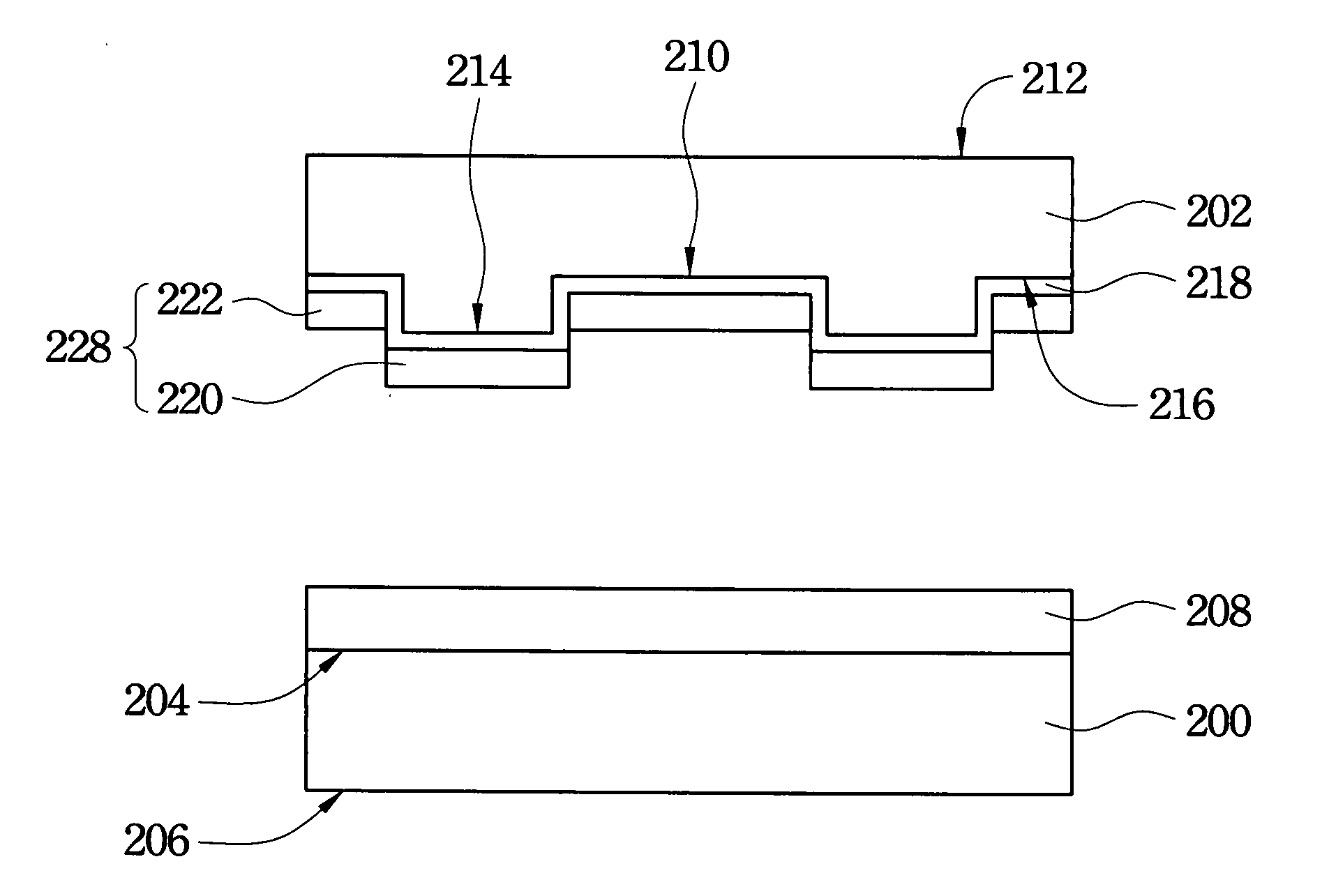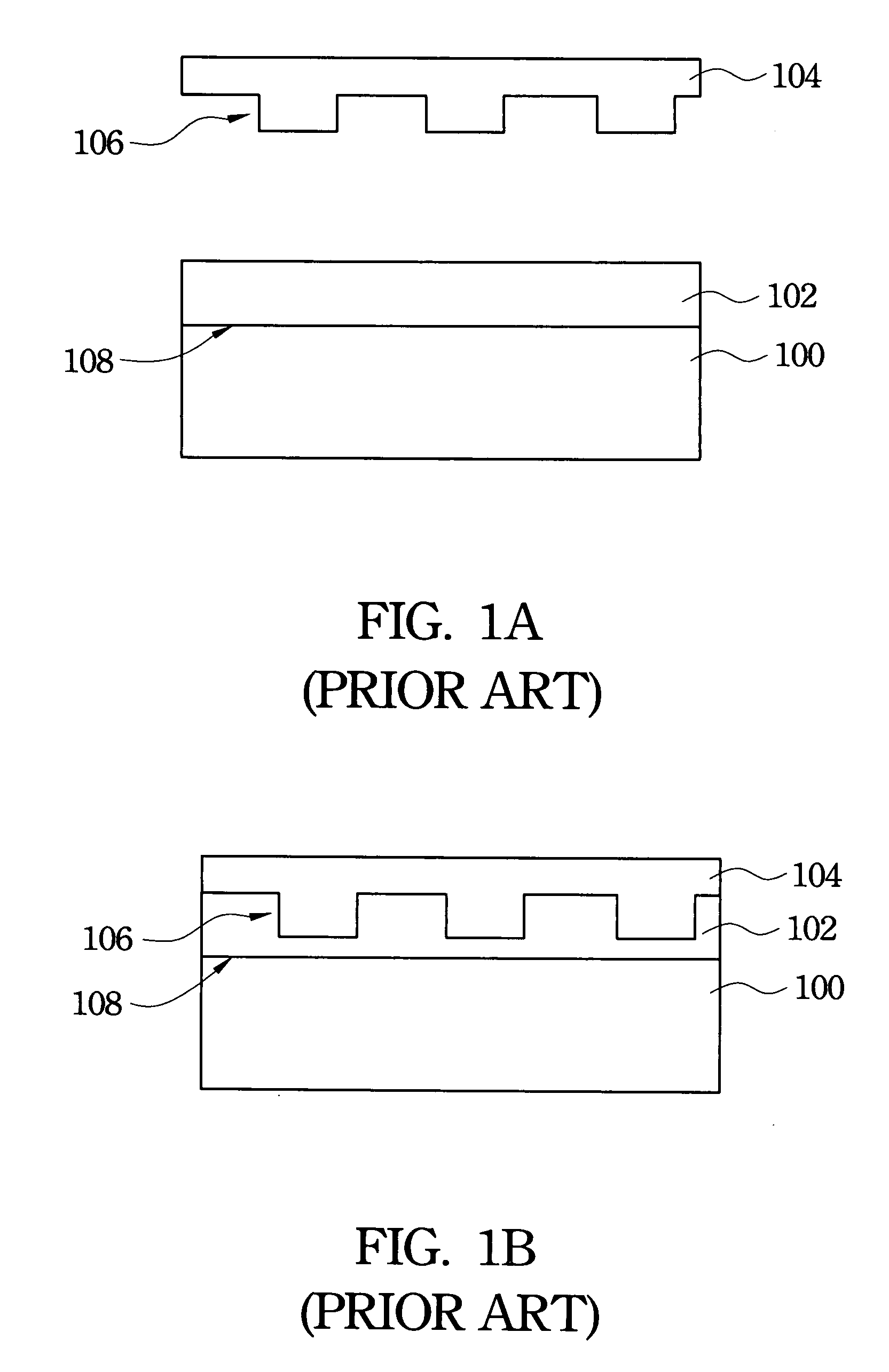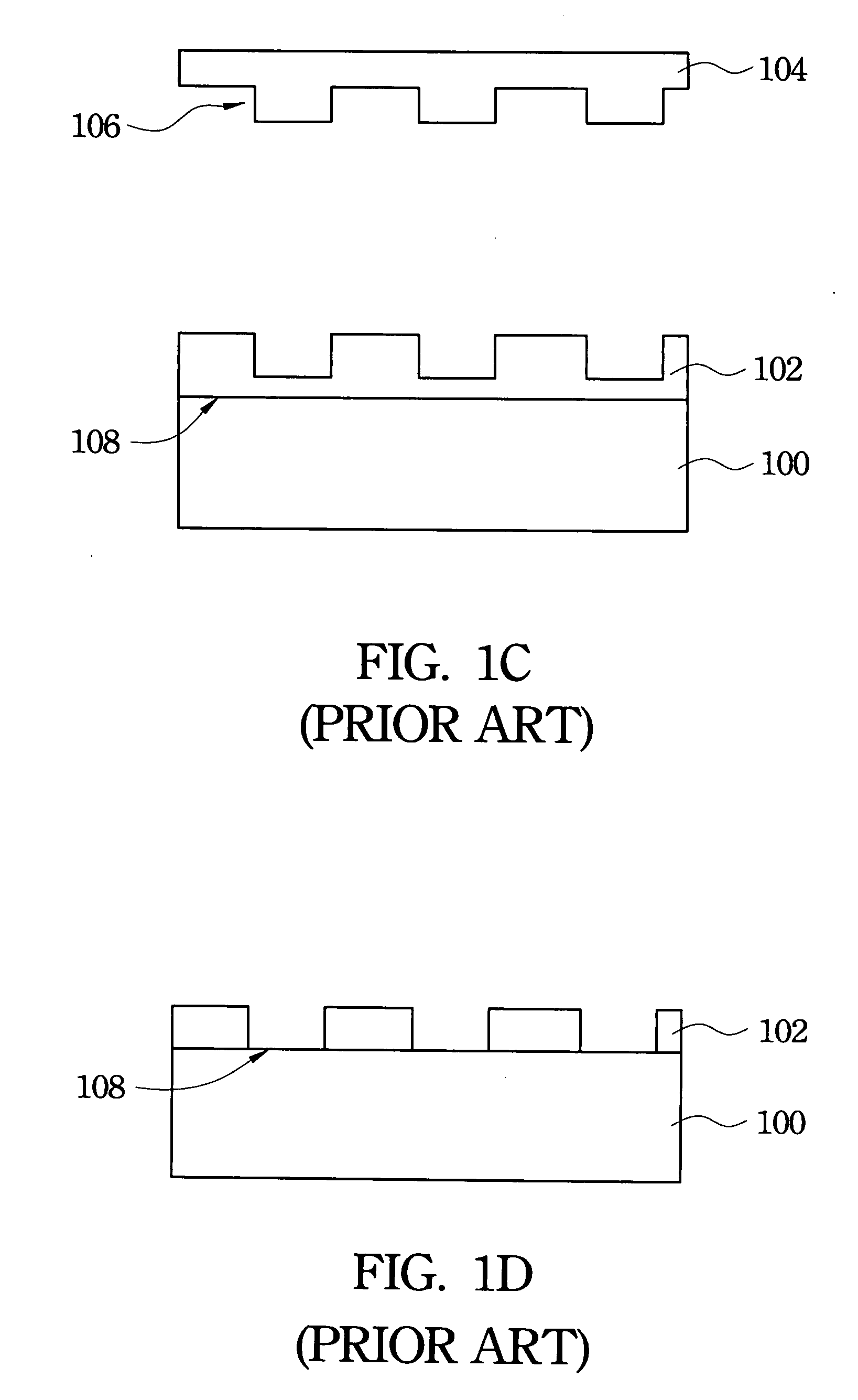Nano-imprinting process
a technology of nano-imprinting and printing process, which is applied in the direction of manufacturing tools, coatings, and catheter, etc., can solve the problems of high cost of molding, inaccurate definition of feature patterns, and high cost of special inks, so as to reduce the degradation of accuracy caused by multiple processes, reduce the cost of molding, and simplify the complicated steps
- Summary
- Abstract
- Description
- Claims
- Application Information
AI Technical Summary
Benefits of technology
Problems solved by technology
Method used
Image
Examples
Embodiment Construction
[0020]The present invention discloses a nano-imprinting process, which can directly embed an etching mask into an imprinting material layer, so that the process can be effectively simplified to rapidly and accurately complete the nano-imprinting process. In order to make the illustration of the present invention more explicit, the following description is stated with reference to FIGS. 2A through 2F.
[0021]FIGS. 2A through 2F are schematic flow diagrams showing a nano-imprinting process in accordance with a preferred embodiment of the present invention. In an exemplary embodiment, a substrate 200 is provided, wherein the substrate 200 includes a surface 204 and a surface 206 on opposite sides. The material of the substrate 200 is, for example, a semiconductor material, a plastic material, a piezoelectric material, a dielectric material, a glass material, a ceramic material, an electrically conductive material, metal or any combinations of the aforementioned materials. In an embodimen...
PUM
| Property | Measurement | Unit |
|---|---|---|
| wavelength | aaaaa | aaaaa |
| temperature | aaaaa | aaaaa |
| piezoelectric | aaaaa | aaaaa |
Abstract
Description
Claims
Application Information
 Login to View More
Login to View More - R&D
- Intellectual Property
- Life Sciences
- Materials
- Tech Scout
- Unparalleled Data Quality
- Higher Quality Content
- 60% Fewer Hallucinations
Browse by: Latest US Patents, China's latest patents, Technical Efficacy Thesaurus, Application Domain, Technology Topic, Popular Technical Reports.
© 2025 PatSnap. All rights reserved.Legal|Privacy policy|Modern Slavery Act Transparency Statement|Sitemap|About US| Contact US: help@patsnap.com



